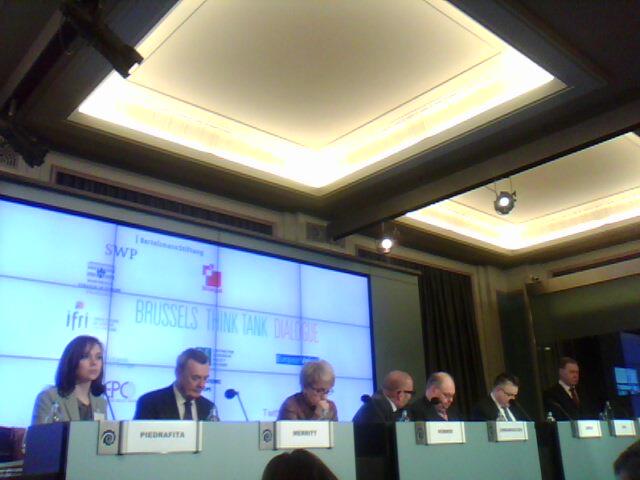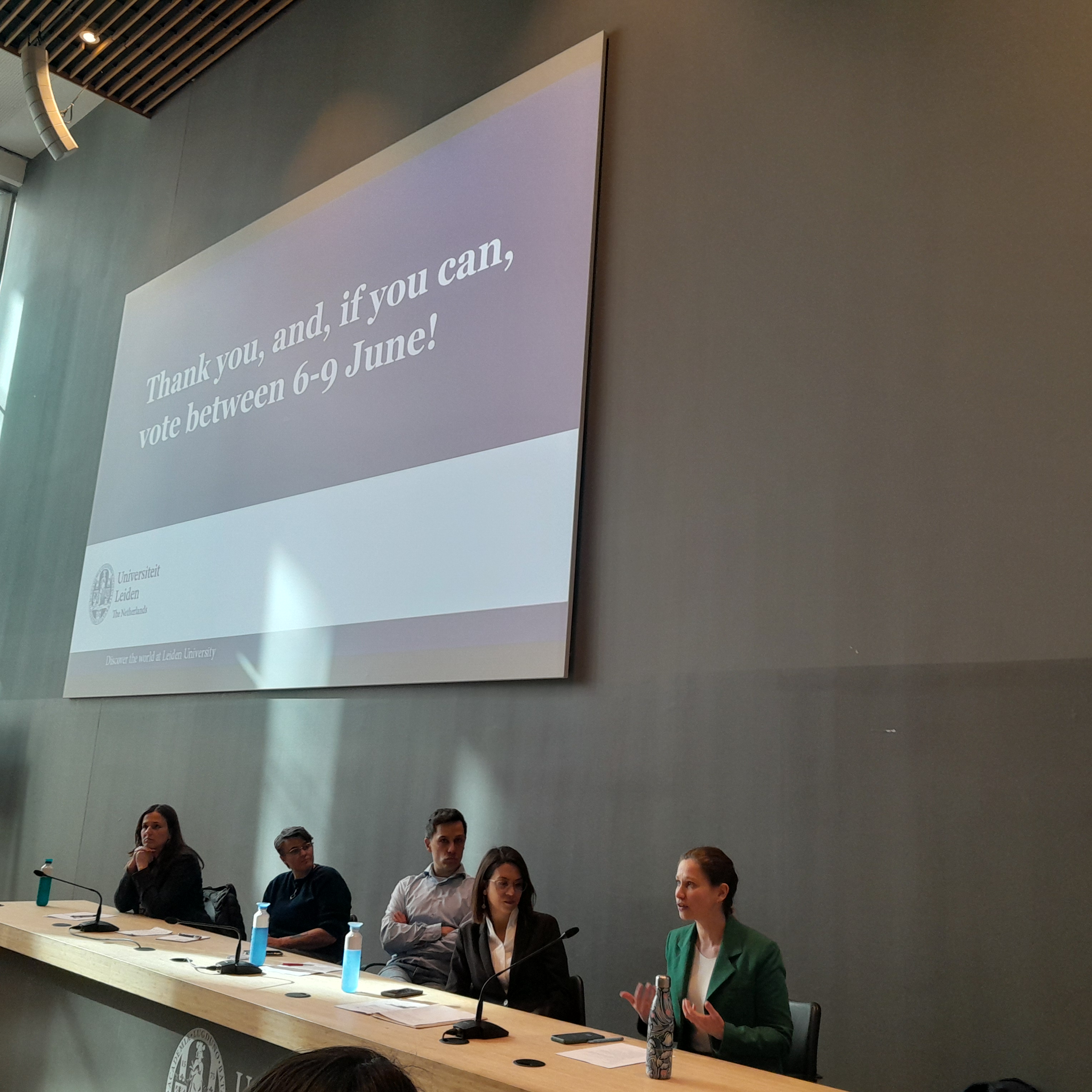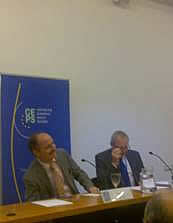2014
For months EU politicians have been warning us about the elections for the European Parliament (EP) held in May 2014 in all 28 member states. European Commission President Jose Barroso recently predicted “a festival of unfounded reproaches against Europe” as a consequence of the EU-wide “rise of extremism from the extreme right and from the extreme left.” The media has mostly followed these political messages, publishing countless articles, editorials and op-eds about the upcoming European apocalypse. Most of these stories refer exclusively to the rise of the right wing French National Front (FN), under new leader Marine Le Pen, arguing that her party’s rising popularity parallels that of other extreme nationalist parties across Europe. In addition, as is often the case in European politics, many articles and op-eds also include references to the Great Depression of the 1930s and a return of fascism.
Most media coverage remains vague on the exact electoral strength of the “anti-European populists”– a political construction by the pro-EU elite that includes far left, far right, populist, and hard Euroskeptic parties. Editorials mainly stress that “rampant right-wing populism” will make significant gains and the anti-Europeans will become important players in the new EP. Most of these commentators believe that the anti-European camp will gain between one-quarter and one-third of all 766 seats in the EP. Whatever the exact number of seats, many fear an American scenario, where the “European Tea Parties” could force a shutdown of the EP and, thereby, the EU.
These predictions, however, are highly unrealistic and seldom substantiated by logic. My own predictions, based largely on the results of the last national elections and adjusted on the basis of recent opinion polls, show rather small gains. Far right parties will probably only gain around 40 seats, which is less than the 44 they won in the 2009 European elections. I exclude some parties that other commentators wrongly include in the far right category, like The Finns and the United Kingdom Independence Party (UKIP), which I include in the amorphous group of “anti-European populists.” All together these latter parties, which often oppose each other even stronger than they oppose the EU, are estimated to win some 125 seats (approximately 16 percent), against the 92 they hold now. That looks like a significant increase, of roughly one-third, but almost 20 seats are gained by just one party, the Italian Five Star Movement (M5S), which is among the least Euroskeptic of this motley crew.
So why are predictions about the far right’s ascendancy so wrong? In part, because they are born out of the erroneous assumption that economic crises lead to big electoral gains for anti-system parties. This theory is based on the specific case of Weimar Germany, in which Adolf Hitler’s Nazi Party won big during the Great Depression and entered a coalition government, which ended democratic rule. Weimar Germany was the exception rather than the rule, however.
There are at least four interconnected reasons why the far right will not win big in the European elections of 2014. First, economic crises do not automatically lead to a rise in support for far right and other anti-system parties. A recent study of the support for far right parties during the Great Depression found that the effect of the economic crisis was greatest “in countries with relatively short histories of democracy, with existing extremist parties, and with electoral systems that created low hurdles to parliamentary representation. Above all, it was greatest where depressed economic conditions were allowed to persist.” Such a perfect storm exists only in a few European countries, most notably Greece.
Second, the previous European elections were held in 2009, when the crisis was already a reality for most of the now-hardest hit countries. Consequently, the 2009 elections took place in economic and political circumstances that are fairly similar to what Europe is experiencing today. So it’s unlikely that voters, despite bailouts that have led to even more dissatisfaction, will show dramatically more support for the far right than they did amidst similar economic conditions four years ago.
Third, anti-European populists need a credible political party to express their hard Euroskepticism in a more convincing way than the soft Euroskepticism of some of the mainstream parties, such as the British Conservative Party. The most successful party family that expresses hard Euroskepticism is the far right. However, only 12 of the 28 EU member states currently have a far right party in their national parliament. The situation for the far left and other anti-European populists is even less impressive.
Fourth and final, most of the credible far right and anti-European populist parties exist in the smaller EU member states, which only have a limited number of seats in the EP. Germany (97) has no credible far right (the NPD is battling bankruptcy and internal strife) and only a new, so far untested, Euroskeptic party. Italy (73) has only a regional far right party, the Northern League, which has recently lost credibility because of scandals, but a soft Euroskeptic populist party, M5S, whose estimated 20 seats account for most of the total increase in anti-European populist seats. The UK has the weak far right British National Party, which gained its best nationwide result in the 2009 elections, but has since become irrelevant because of internal strife and financial problems. And notwithstanding all the media attention for UKIP, it will have a hard time repeating, let alone topping, its record 16.5 percent of the vote in 2009. Finally, Spain (54) and Poland (51) have neither a credible far right party nor a credible anti-European party.
In the end, France (74) is the only large EU member state with a credible and popular far right, which will probably account for almost 50 percent of all far right seats in the next EP. France is the exception rather than the rule. This makes the many generalizations based on the specific case of the FN in France as misguided as the historical generalizations based on the Nazi Party in Weimar Germany. Expect small gains from the far right in May.


